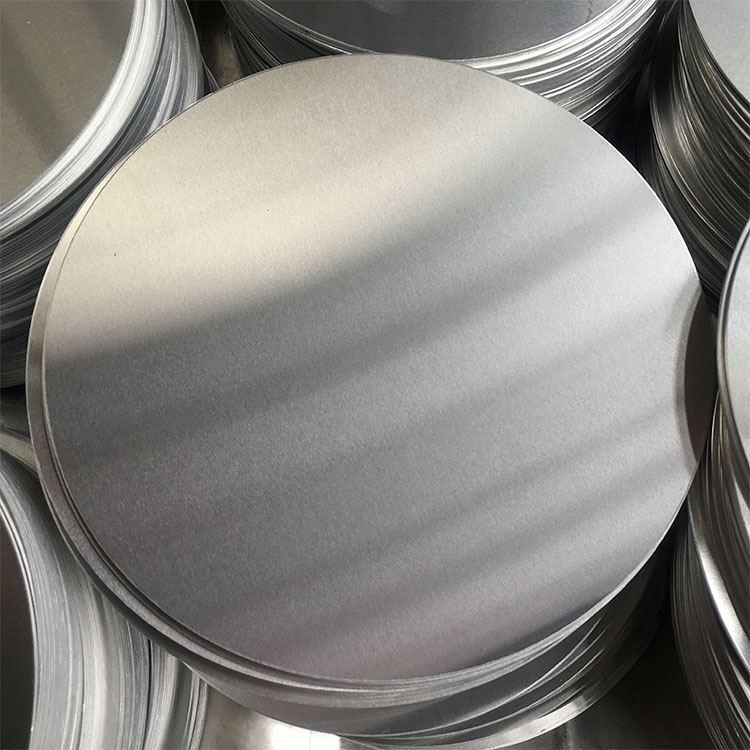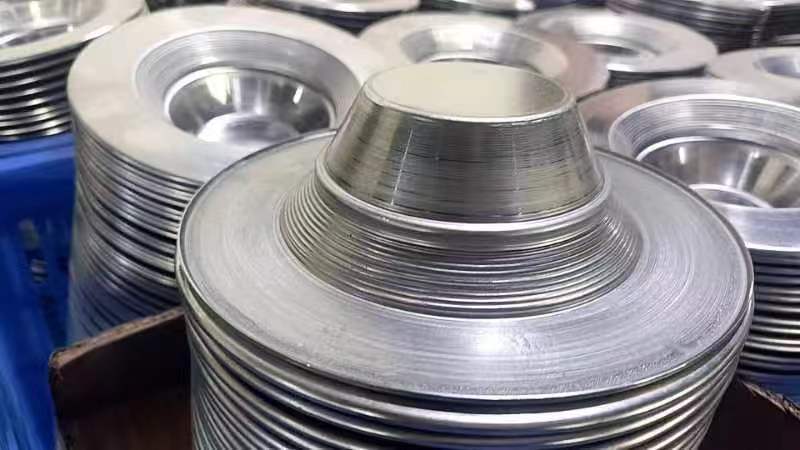Aluminum circles are widely used in the manufacture of lampshades due to their excellent thermal conductivity, light weight, and corrosion resistance. Below is a detailed process and description of how aluminum circles are made into lampshades:
Preparation of Raw Materials
Aluminum Alloy Selection: The raw materials for producing aluminum circles typically come from the 3000 or 5000 series aluminum alloys. These alloys are chosen for their good formability and durability, making them suitable for lampshade production.
Specifications of Aluminum Circles: The appropriate diameter and thickness of the aluminum circles are selected based on the design requirements. Generally, the thickness of lampshades ranges from 0.5 mm to 1.5 mm, with the diameter depending on the size of the lampshade.

Stamping
Mold Design: Molds are designed according to the shape and dimensions of the lampshade. The precision and quality of the mold directly affect the final product.
Stamping Process: The aluminum circle is placed on a stamping press, where it undergoes multiple stamping operations through the mold to gradually form the desired shape. During stamping, it is crucial to control the pressure and speed to ensure even deformation without cracks or wrinkles.
Drawing
Initial Drawing: After stamping, the initially shaped aluminum circle is placed on a drawing machine. Through the drawing mold, the circle undergoes initial stretching. This process requires gradually increasing the drawing force to prevent the aluminum from cracking.
Fine Drawing: Following the initial drawing, the aluminum circle undergoes fine drawing to achieve the final shape and dimensions of the lampshade. This involves repeated drawing and adjustments to ensure a smooth and even surface.
Trimming and Finishing
Trimming: The edges of the drawn lampshade may have excess material or irregularities. A trimming machine is used to remove the excess material and ensure neat edges.
Finishing: The lampshade undergoes finishing processes such as grinding and polishing to ensure a smooth, blemish-free surface. During finishing, additional processes like drilling or other modifications can be done as required.

Surface Treatment
Anodizing: To enhance the corrosion resistance and aesthetic appeal of the aluminum lampshade, anodizing treatment can be applied. Anodizing not only increases surface hardness but also allows for various color options, enhancing the decorative effect.
Coating: Some lampshades undergo coating treatments to add a protective layer and decorative effect. Coatings can include anti-static, dust-proof, and fingerprint-resistant layers to improve the lampshade’s performance.
Assembly and Inspection
Assembly: The finished aluminum lampshade is assembled with other components of the lighting fixture. During assembly, it is essential to ensure tight connections and electrical safety.
Inspection: After assembly, the lampshade undergoes thorough inspection to ensure its quality and performance. Key inspection items include surface smoothness, dimensional accuracy, coating uniformity, and electrical safety.
Conclusion
The process of making lampshades from aluminum circles involves several stages, including raw material preparation, stamping, drawing, trimming and finishing, surface treatment, and assembly and inspection. Each stage requires precise techniques and strict quality control to ensure that the final lampshade is not only aesthetically pleasing but also functional and durable.
The advantages of using aluminum circles for lampshades include their light weight, corrosion resistance, excellent thermal conductivity, and ease of forming into various shapes. These qualities make aluminum an ideal material for modern lighting designs. With continuous advancements in manufacturing technology, aluminum circle lampshades will become even more prevalent in the lighting industry, offering higher production efficiency and superior product quality.


